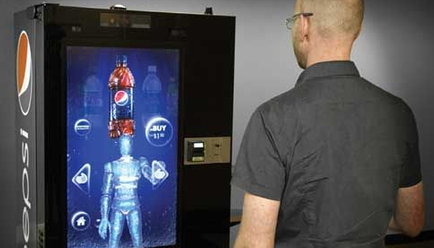The digital landscape has evolved significantly in recent years, reshaping how businesses operate and consumers engage with products and services. A fresh, exciting concept that promises to further transform the way we shop online is the rise of virtual vending machines. While the idea of a vending machine is not new, the shift to the digital space is an innovative concept that is gaining momentum, blending convenience, automation, and emerging technologies to create a new shopping experience.
The Role of Emerging Technologies in Virtual Vending Machines
To understand the power of virtual vending machines, it’s essential to look at the cutting-edge technologies that make them possible:
1. Artificial Intelligence (AI)
AI plays a crucial role in shaping the virtual vending machine ecosystem. Machine learning algorithms help predict customer preferences and tailor product recommendations, similar to how streaming services suggest movies or music. AI can also help virtual vending machines optimize pricing, stock levels, and inventory management by analyzing customer behavior in real-time, ensuring that the most popular items are always available when demand peaks.
2. Blockchain and Cryptocurrency
Blockchain technology introduces a layer of security and transparency in virtual vending transactions. Moreover, the integration of cryptocurrencies, such as Bitcoin or Ethereum, could pave the way for virtual vending machines that accept alternative forms of payment, catering to a growing market of cryptocurrency users who want to shop seamlessly without traditional banking systems. This could open up new opportunities for global commerce, allowing people from different parts of the world to engage in cross-border transactions with ease.
3. Augmented Reality (AR) and Virtual Reality (VR)
Augmented Reality (AR) and Virtual Reality (VR) are transformative technologies that are starting to make their way into digital commerce, especially with the rise of virtual vending machines. The immersive technologies can create a virtual shopping experience, allowing users to interact with products in a fully interactive and lifelike 3D environment. Imagine using VR goggles to explore a virtual mall and accessing various virtual vending machines scattered across the store, each offering products tailored to your preferences.
Virtual vending machines could place 3D holograms of products in your living room, so you can “try before you buy.”

4. Internet of Things (IoT)
The Internet of Things (IoT) connects everyday devices to the internet, allowing for automated functions and seamless communication between products. IoT devices could track product availability, monitor usage patterns, and even suggest reordering or restocking of digital or physical products based on real-time data analysis.
How Virtual Vending Machines Could Revolutionize Digital Commerce
The combination of these technologies is transforming the digital shopping landscape. Let’s explore how could impact digital commerce in practical, transformative ways:
1. Instant Gratification and Convenience
One of the biggest advantages of virtual vending machines is instant access to products. Consumers are increasingly seeking convenience, and it can satisfy this need by offering quick, self-service options. In a broader sense, they could facilitate faster purchases of physical items with immediate shipping and tracking features.
2. Personalized Shopping Experience
With the help of AI, vending machines can offer a highly personalized shopping experience. By collecting and analyzing user data, these machines can present tailored product suggestions based on past preferences, behaviors, and trends. This level of personalization could lead to higher conversion rates for businesses and a more enjoyable, customized experience for consumers.
3. Expanding Accessibility
It break down geographical barriers, making products available to anyone with an internet connection.
Moreover, virtual vending machines can also be integrated into the rapidly growing digital spaces of metaverses and virtual worlds. Consumers could shop for real-world products, digital goods, or services within these spaces, providing a truly integrated digital commerce experience.
4. Streamlining Business Operations
For businesses, virtual vending machines offer significant operational benefits. This is particularly useful for digital goods like software, music, or online learning courses, which require little physical infrastructure.
The Future of Virtual Vending Machines
The future looks bright. As new technologies emerge and consumer behaviors evolve, it will likely become a core component of the digital commerce ecosystem. Some potential future developments include:
- Storefronts in augmented spaces, are embedded within immersive environments, offering a new layer of engagement for customers.
- AI-driven product innovations, where vending machines can offer unique, customized goods based on a person’s preferences, health data, or purchase history.
- More interactive and gamified experiences, where consumers can “unlock” special offers or rewards by interacting with vending machines in fun, engaging ways. Read More>>>
1 thought on “How Virtual Vending Machines Could Revolutionize Digital Commerce”